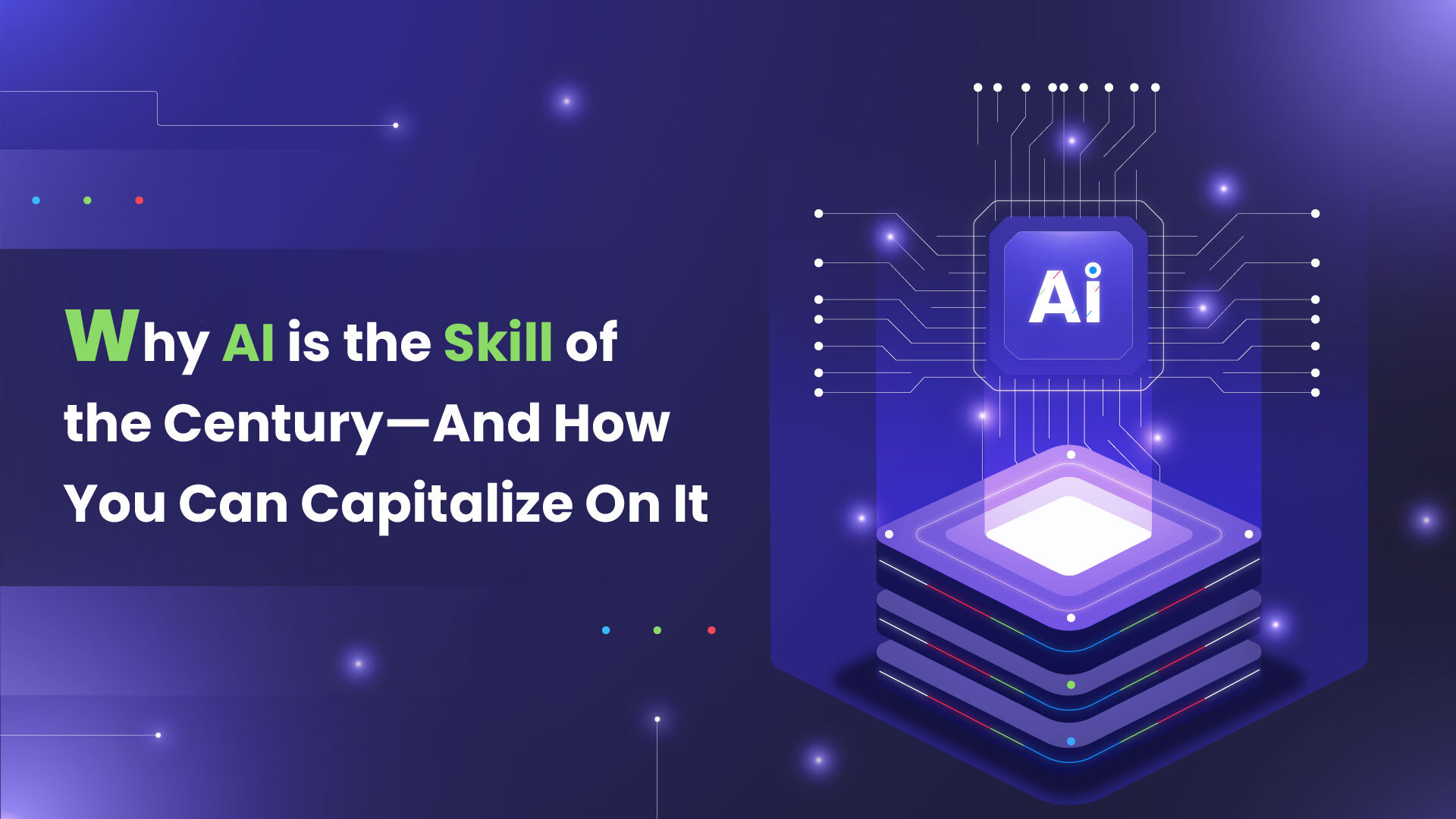
Career in AI: If the 20th century was the era of silicon and software, then the 21st is undoubtedly the age of Artificial Intelligence—AI is not just a technology; it’s the ‘Skill of the Century’. Whether you’re an artist, an engineer, or a business leader, AI is becoming the backbone of innovation, turning the impossible into possible. As jobs evolve and entire industries undergo transformations, mastering AI isn’t just a ‘nice to have’ it’s a survival skill for the new world order.
But First, What is Artificial Intelligence?
Having established that AI is the Skill of the Century, it’s crucial to understand what this revolutionary technology encompasses. At its core, Artificial Intelligence is a branch of computer science focused on creating intelligent machines capable of performing tasks that typically require human intelligence. These tasks range from understanding natural language and recognizing patterns to making decisions and predictions. Unlike traditional software, which follows pre-set rules, AI systems learn from data, enabling them to improve their performance over time.
AI is a collection of technologies and methodologies. From machine learning algorithms that sift through terabytes of data to find the needle in a haystack to neural networks modeled after the human brain, AI is the engine powering a diverse array of applications. Whether it’s diagnosing rare diseases earlier than human doctors or powering the voice assistant in your smartphone, AI is making a considerable impact across industries, revolutionizing how we work, live, and even think.
Why You Should Learn Artificial Intelligence
Mastering this technology isn’t just an asset; it’s a necessity for those looking to thrive in the modern world. Below are compelling reasons to consider why AI should be at the top of your learning list.
AI is EVERYWHERE!
Artificial intelligence’s influence can’t be overstated—it’s not the future, it’s the NOW. Let’s take a quick inventory of a typical day: You wake up to an alarm set by a smartphone app that’s learned your sleep patterns. You ask your smart home device about the weather as you prepare for your day. On your commute, you may even be in a car that uses AI for GPS routing to avoid traffic. Once at work, AI algorithms help sort through your emails, flagging the most important ones. In healthcare, doctors rely on AI to analyze X-rays and MRIs. In finance, algorithms predict stock market trends. The list goes on and on, indicating that AI is not a trend but a transformative force.
AI: Beyond the Basics
The omnipresence of AI goes beyond our morning routines and work emails—it’s revolutionizing entire industries and creating new possibilities we hadn’t even dreamed of. Here are some compelling areas:
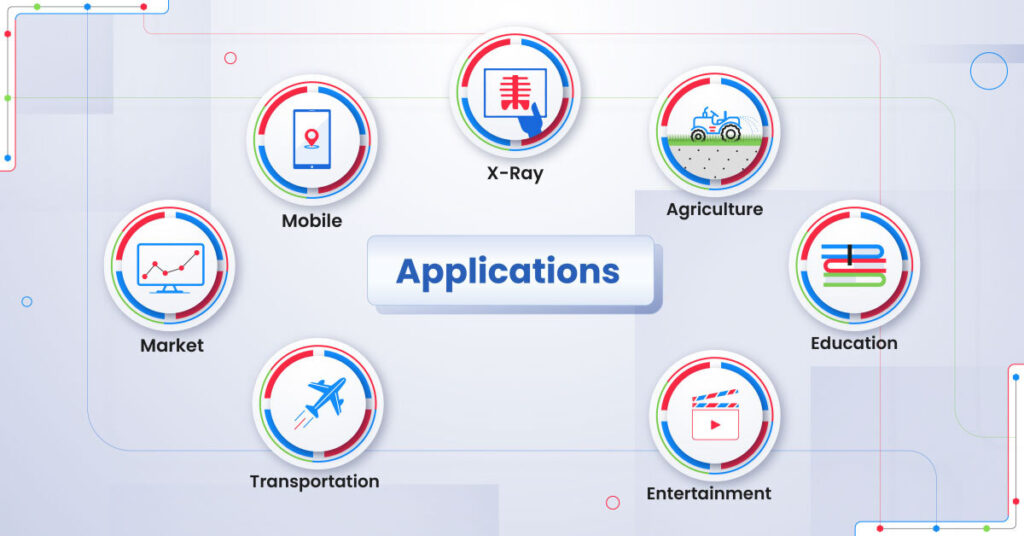
Healthcare: Beyond analyzing X-rays and MRIs, AI is used in predictive analytics to forecast outbreaks and the progression of diseases. Some AI algorithms can even assist in complex surgeries.
Finance: AI isn’t just for stock market predictions. It’s used in fraud detection, robo-advising, and automated customer service.
Transportation: Self-driving cars are the tip of the iceberg. AI is also used in route optimization for logistics and delivery services and in predictive maintenance for public transit systems.
Retail: From personalized product recommendations to optimizing supply chains, AI is a game-changer in retail. It’s also transforming the customer service experience through chatbots.
Entertainment: Streaming services use AI to recommend shows, movies, and music based on user preferences. It’s also used in the creation of certain types of content.
Job Opportunities: Despite fears of job losses, according to studies done by the World Economic Forum, AI, machine learning, and data analytics could also create 133 million new jobs globally by 2025. This means it’s offering more job opportunities than it takes away.
Education: Personalized learning experiences and administrative automation are some of the ways AI is shaping the future of education.
Agriculture: AI is used for crop and soil health monitoring, predictive analysis for yield, and even robotic harvesting.
Why Now Is a Good Time to Study Artificial Intelligence
Timing is everything. We’re at a unique juncture where technological advancement is not just rapid; it’s exponential. AI is no longer just a subplot in science fiction; it’s headline news, shaping global policies, economics, and even ethical considerations.
Maturing Technologies: Algorithms and models that were theoretical a few years ago are now being implemented and used in practical applications.
Data Availability: Never before in history has so much data been available for analysis and insight generation. And what better way to harness it than through AI?
Investment: The public and private sectors are heavily investing in AI research and implementation. This fuels innovation and job creation.
Public Awareness: As AI impacts more areas of our lives, public interest in it has grown exponentially, creating an environment for innovation and research.
Accessibility: Thanks to open-source frameworks and cheaper hardware, entering the AI field is more accessible than ever. You don’t necessarily need a Ph.D. to make a meaningful contribution.
Global Challenges: From climate change to healthcare, the problems of the 21st century require 21st-century solutions. AI has the potential to address some of the most pressing issues we face.
So, if you’ve been sitting on the fence about whether or not to make AI your career focus, consider this your call to action. There’s never been a better time to dive into this game-changing field.
Dive deep into the realm of Artificial Intelligence with our curated selection of FREE courses.
Whether you’re passionate about Computer Vision, Python, or deep learning, our beginner bootcamps are your launchpad. Start your AI journey now!
Stats and Facts that Will Increase Your Interest in a Career in AI
If you’re still not convinced about the potential of AI, these hard-hitting statistics might just do the trick. As the saying goes, “Numbers don’t lie.”
Business Adoption and Implementation
– A TechJury article states that 35% of companies are already utilizing AI, with 42% exploring its future implementation.
– A whopping 91.5% of leading businesses make ongoing investments in AI.
– Gartner predicts a 25% increase in customer satisfaction by 2023 for organizations utilizing AI.
Investment and Priorities
– According to McKinsey, key areas to prioritize in AI include cybersecurity, compliance, and personal privacy.
– Info-Tech Research Group reports that 44% of private sector companies plan on investing in AI systems in 2023.
Voice Search and Assistants
– Tech Jury reveals that 97% of mobile users operate AI-powered voice assistants, and 40% of people use voice search at least once a day.
Machine Learning Trends
– According to a Verta, Inc. survey, 63% of companies plan to either increase or maintain their AI and machine learning budgets in 2023.
– Netflix saves approximately $1 billion per year through its use of machine learning for content recommendations.
Employment Impact
– Despite fears of job loss, AI is expected to create 12 million more jobs than it replaces, with 97 million specialists needed in the AI industry by 2025.
Industry-Specific Usage
– AI’s influence spans multiple sectors, from technology and financial services to healthcare, education, and government.
Retail Revolution
– AI spending in the retail sector is expected to soar to $20.05 billion by 2026.
Customer Service and Chatbots
– IBM indicates that chatbots can reduce customer service costs by as much as 30%.
Market Size and Growth
– The AI market was valued at $119.78 billion in 2022 and is projected to hit $1,597.1 billion by 2030.
Annual Growth Rate
The global artificial intelligence (AI) market size was valued at USD 454.12 billion in 2022 and is expected to hit around USD 2,575.16 billion by 2032, progressing with a compound annual growth rate (CAGR) of 19% from 2023 to 2032
These statistics aren’t just numbers; they’re writing on the wall, spelling out that AI is not just a trend—it’s a revolution. So, are you ready to be a part of it?
Your Skills Will Be in High Demand
The demand for AI specialists is skyrocketing, and if you have the skills, you’re essentially writing your own ticket. Here’s a quick rundown:
Job Market: The gap between job openings in AI and qualified candidates is widening, putting you in an advantageous position.
Career Growth: AI is expanding rapidly, creating a multitude of roles and fast-track career paths that are up for grabs.
Earning Potential: With high demand and low supply, AI specialists are among the top earners in tech, often receiving not just a high salary but also substantial bonuses and benefits.
In a nutshell, a career in AI is more than just lucrative—it offers job security, career progression, and the opportunity to be part of an industry that’s shaping the future.
What Does the Career Path in Computer Vision Look Like?
Computer Vision, another captivating area within the AI realm, has a unique set of career options tailored to its interdisciplinary nature, combining elements of software engineering, data science, and image processing. Here’s a roadmap to guide you through the career landscape in Computer Vision:
Entry-Level Positions: At this stage, roles such as Junior Computer Vision Engineer or Image Processing Analyst are common. These require a strong background in programming, linear algebra, and basic machine learning algorithms.
Mid-Level Roles: As you gain experience, you can transition into roles like Computer Vision Engineer or Research Scientist. These positions often demand more specific skills like 3D reconstruction, object detection, and semantic segmentation.
Senior Roles: After establishing a solid portfolio, higher-ranking positions such as Senior Computer Vision Engineer or Lead Research Scientist open up. These roles involve overseeing major projects, managing teams, and contributing to strategic decision-making.
Specializations: The field of computer vision offers several niches, including facial recognition, autonomous vehicles, medical image analysis, and augmented reality, to name a few.
Research and Development: Advanced degrees and publications can pave the way for roles in R&D departments of tech giants or academic positions in top universities.
Industry Applications: Computer Vision specialists are highly sought after in a variety of sectors, including healthcare, automotive, retail, and security, further broadening the career landscape.
Consulting and Start-ups: For those with an entrepreneurial spirit, consulting in Computer Vision technology or even launching a start-up can be a viable career move, thanks to the growing commercial interest in this technology.
Just like machine learning, Computer Vision offers a rich career trajectory with myriad avenues for specialization and advancement. Whether you’re interested in contributing to groundbreaking research or applying Computer Vision techniques to solve real-world problems, the field promises a rewarding and dynamic career.
Options on How to Pursue a Career in AI
Deciding to make a career in AI is one thing; figuring out how to break into this dynamic field is another. Here are some educational paths you can consider to build a solid foundation in AI and machine learning:
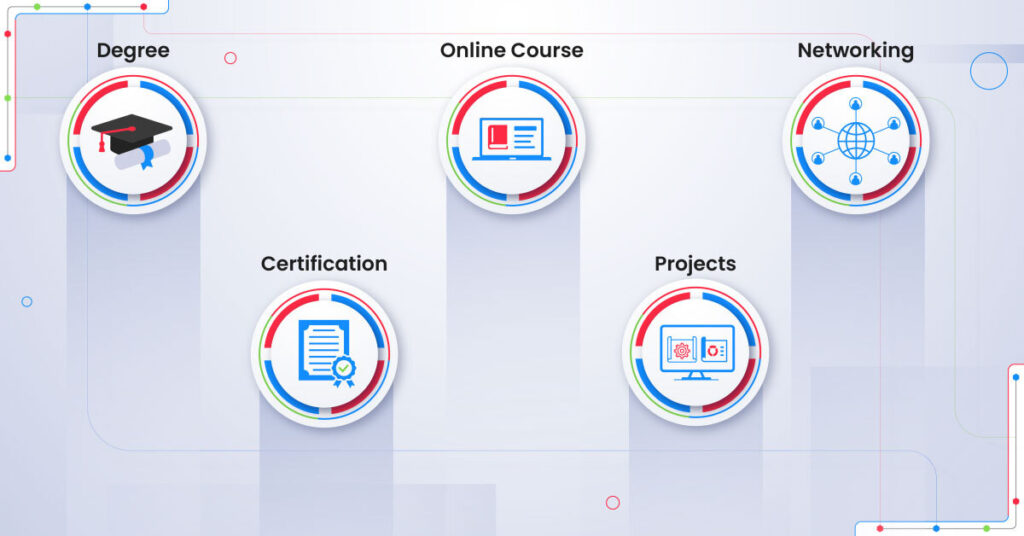
Online Courses: Platforms like OpenCV University, Coursera, Udacity, and edX offer specialized AI and Machine Learning courses. Certificates from these courses can add weight to your resume.
Bachelor’s Degree: A strong start often begins with a Bachelor’s degree in Computer Science, Electrical Engineering, or even Mathematics. These programs provide the necessary background in programming, statistics, and data structures.
Master’s Programs: Specialized Master’s programs in AI or Machine Learning offer in-depth knowledge and research opportunities. Schools like Stanford, MIT, and Carnegie Mellon are well-known for such courses.
Ph.D. Programs: For those looking to make significant contributions to the field, a Ph.D. focused on AI can be a game-changer. This is particularly beneficial for those interested in research roles or academia.
Coding Bootcamps: These are intensive programs designed to turn you into a job-ready AI specialist in a shorter amount of time. They focus on hands-on projects and are often in collaboration with tech companies. Check out these FREE OpenCV Courses Bootcamp.
Self-Taught Route: With abundant resources like MOOCs, eBooks, and YouTube tutorials available, many have successfully self-trained in AI. However, this path demands strong discipline and a good understanding of where to find quality information.
Industry Certifications: Companies like Google, IBM, and OpenCV offer AI certifications that are recognized in the industry. These can be excellent add-ons to your educational profile.
Networking and Community: Join AI-focused meetups, webinars, and conferences. Networking can often open up educational and job opportunities you won’t find otherwise.
Internships and Projects: Real-world experience can be as valuable as formal education. Internships, hackathons, and side projects can offer practical skills and even lead to job offers.
Whether you aim for formal education, prefer the flexibility of online courses, or want to take the helm of your own learning, multiple pathways lead to a career in AI. Choose the one that best aligns with your career goals and current life situation.
What Are Some of the Important Skills Required for a Career in AI?
A career in AI demands a unique blend of technical and soft skills. Here’s a quick rundown:
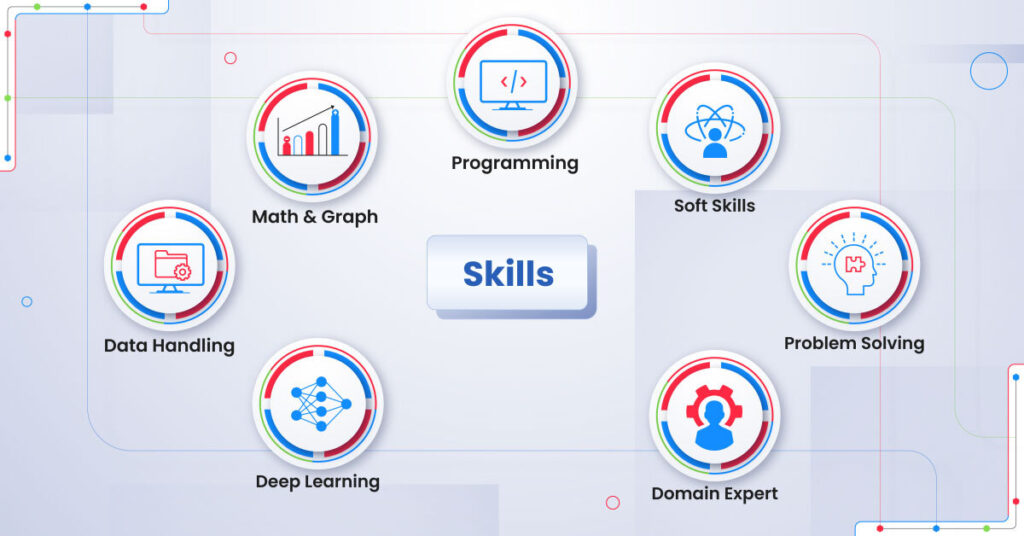
Programming: Mastery of languages like Python, Java, or C++ is essential for implementing algorithms and models.
Mathematics and Statistics: A strong grasp of calculus, linear algebra, and statistical methods is crucial for understanding data patterns and machine learning algorithms.
Data Handling: Ability to work with large datasets, including data cleaning and preprocessing.
Deep Learning Frameworks: Familiarity with platforms like TensorFlow, PyTorch, or Scikit-learn is often required for building and deploying models.
Problem-Solving: The ability to approach complex challenges methodically and come up with innovative solutions.
Domain Expertise: Knowledge of the specific industry where AI will be applied, such as healthcare, finance, or automotive.
Soft Skills: Communication, teamwork, and adaptability are vital, especially for translating technical concepts to non-experts and working in interdisciplinary teams.
These skills form the backbone of a successful career in AI and are often considered non-negotiable by employers in the field.
Conclusion: Your Next Steps
As AI continues to mature, it will present not just challenges but a host of opportunities for those equipped to understand and exploit its potential.
Your Next Steps:
Educate Yourself: With the high demand for AI specialists, now is the time to invest in AI education. Whether it’s enrolling in a Master’s program or taking specialized AI online courses, continuous learning is key.
Stay Updated: The field of AI is ever-evolving. Keep yourself updated with the latest trends, research, and advancements.
Network: Building a strong professional network can open doors to opportunities in the burgeoning AI industry.
Skill Up: Practical experience is crucial. Work on projects contribute to open-source platforms, or intern at companies working on AI to gain real-world experience.
The landscape of AI is both exciting and challenging. While it promises to redefine our present, it also holds the key to unlocking numerous possibilities for the future. The question is not whether you can afford to invest in understanding AI; it’s whether you can afford not to.

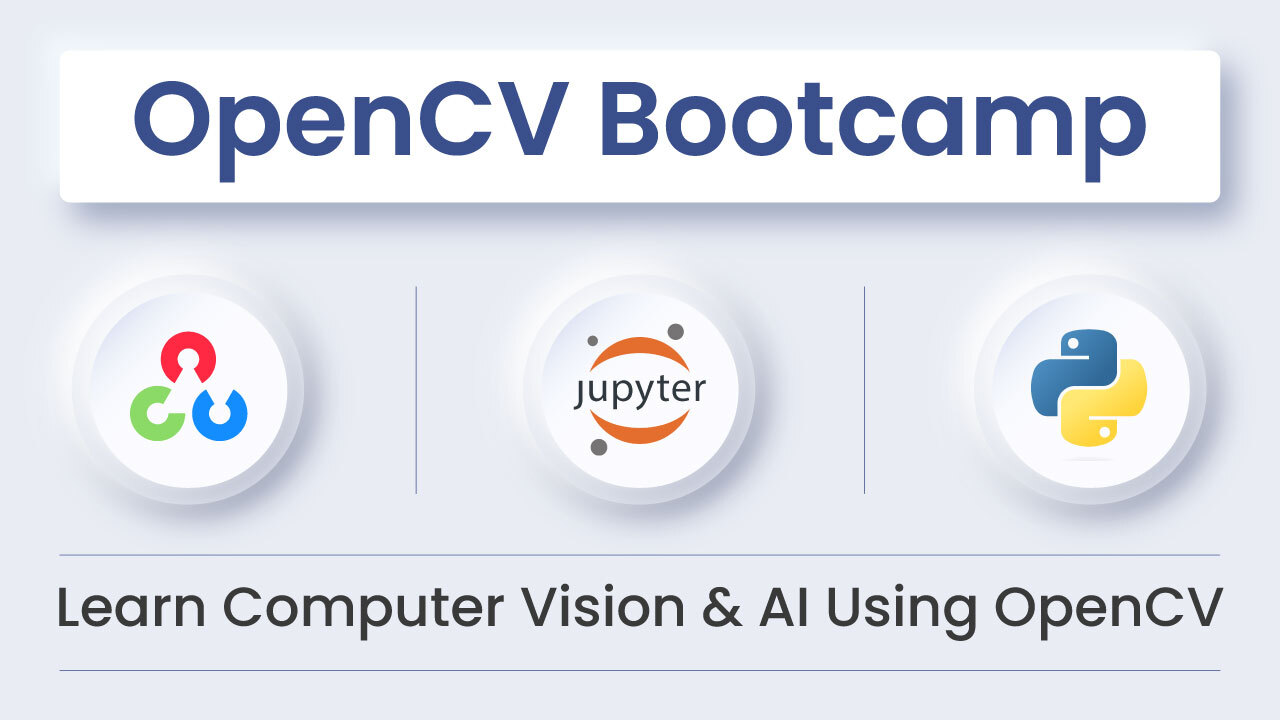

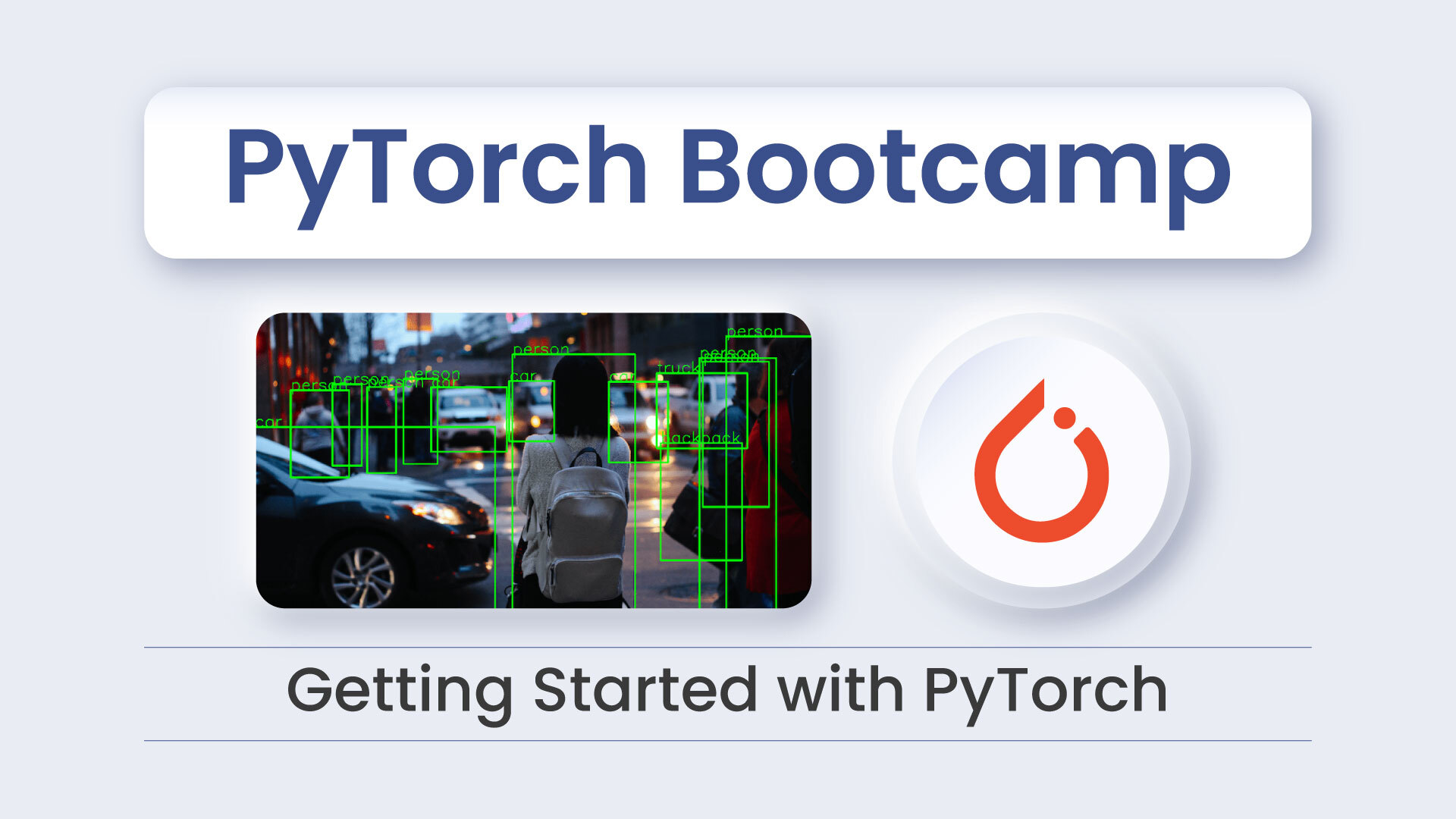
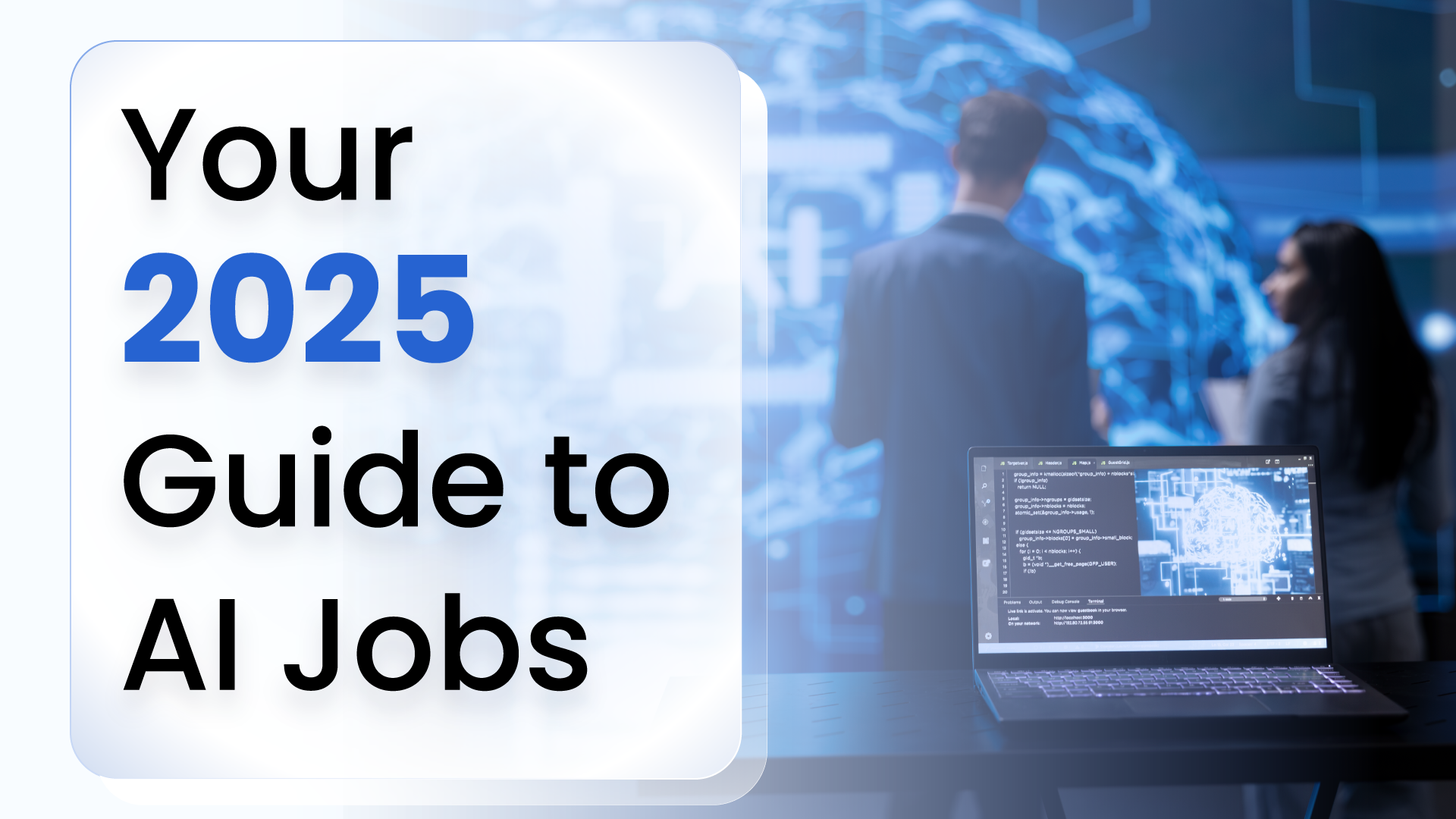
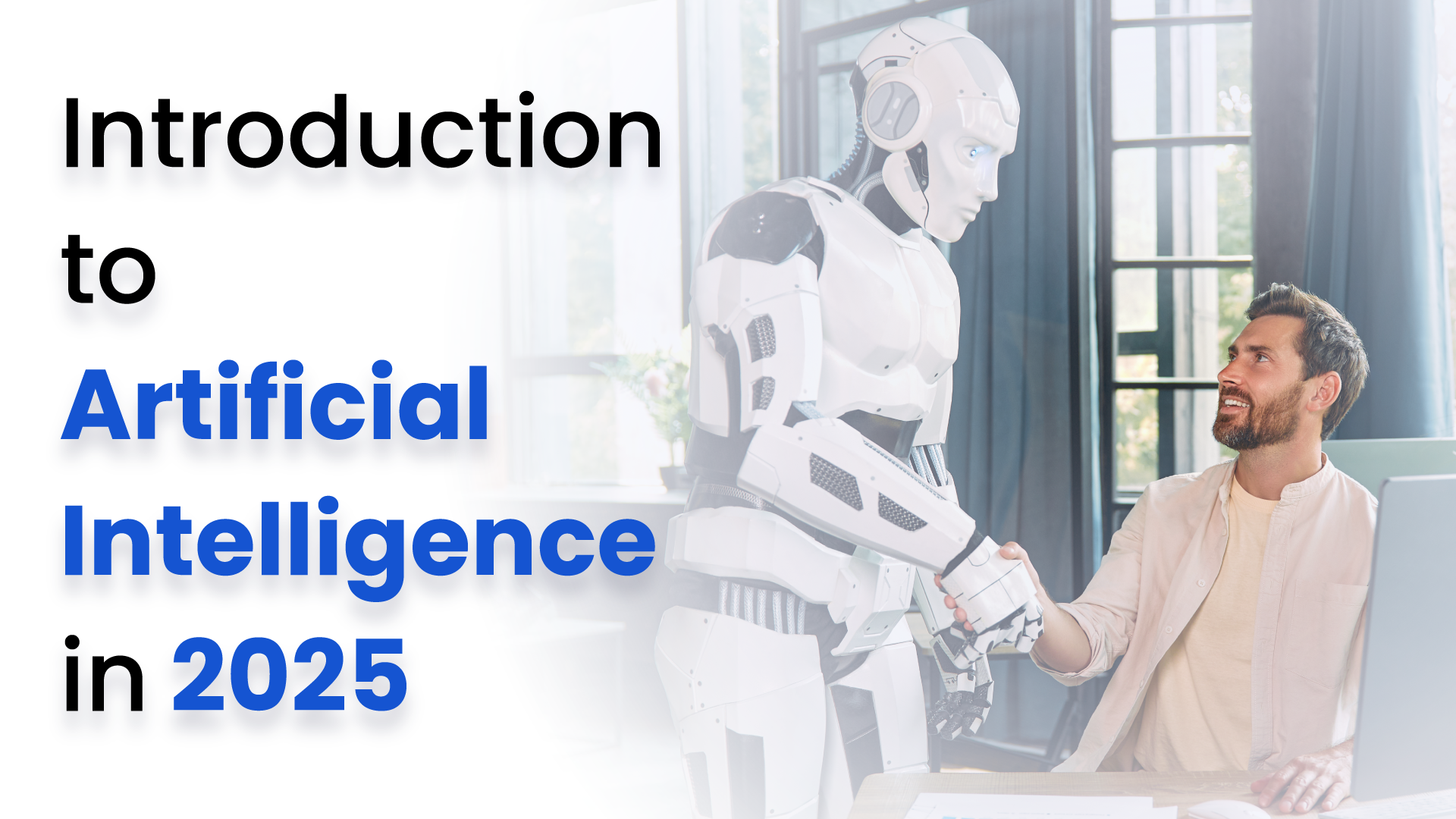
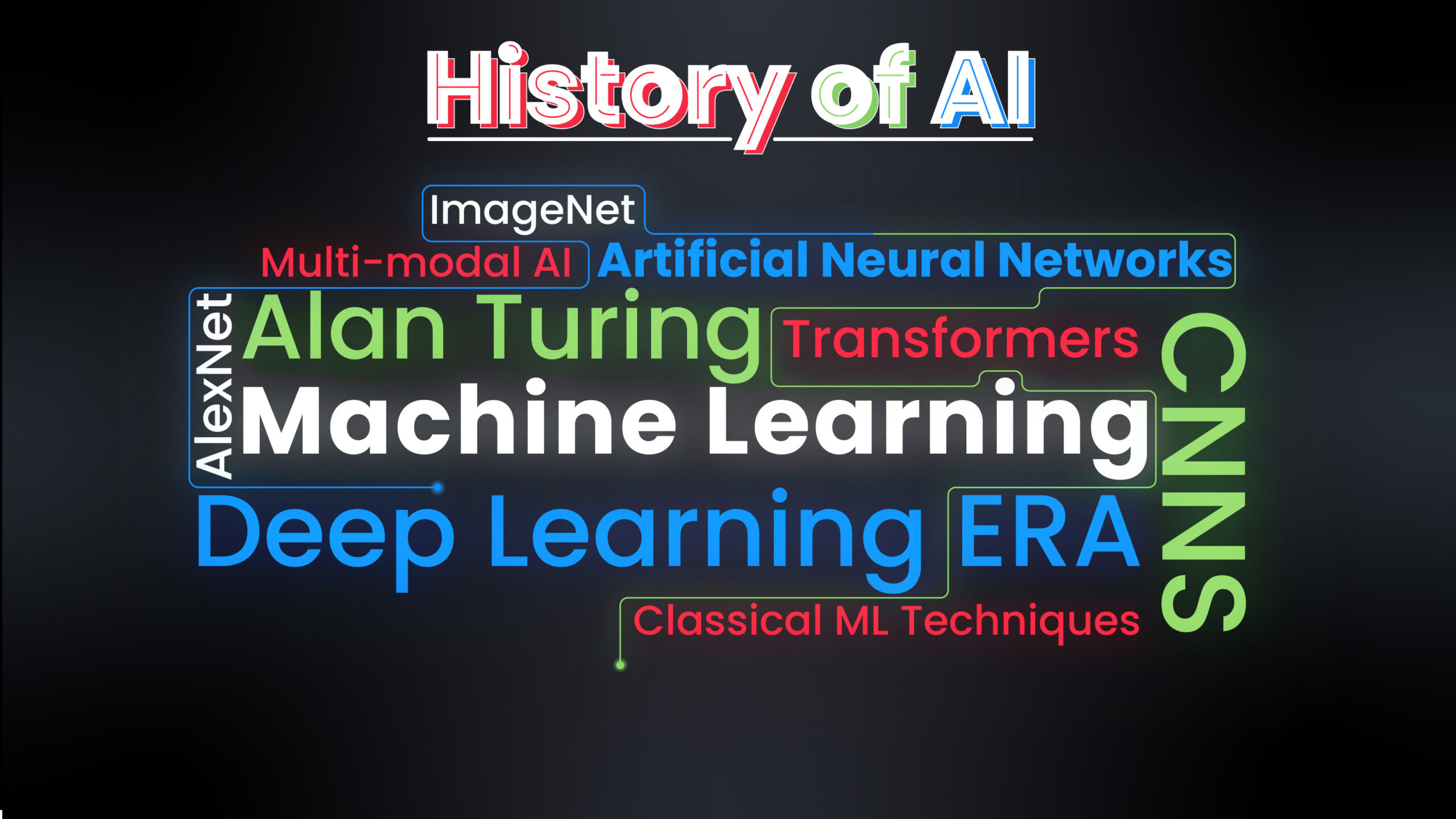
5K+ Learners
Join Free VLM Bootcamp3 Hours of Learning